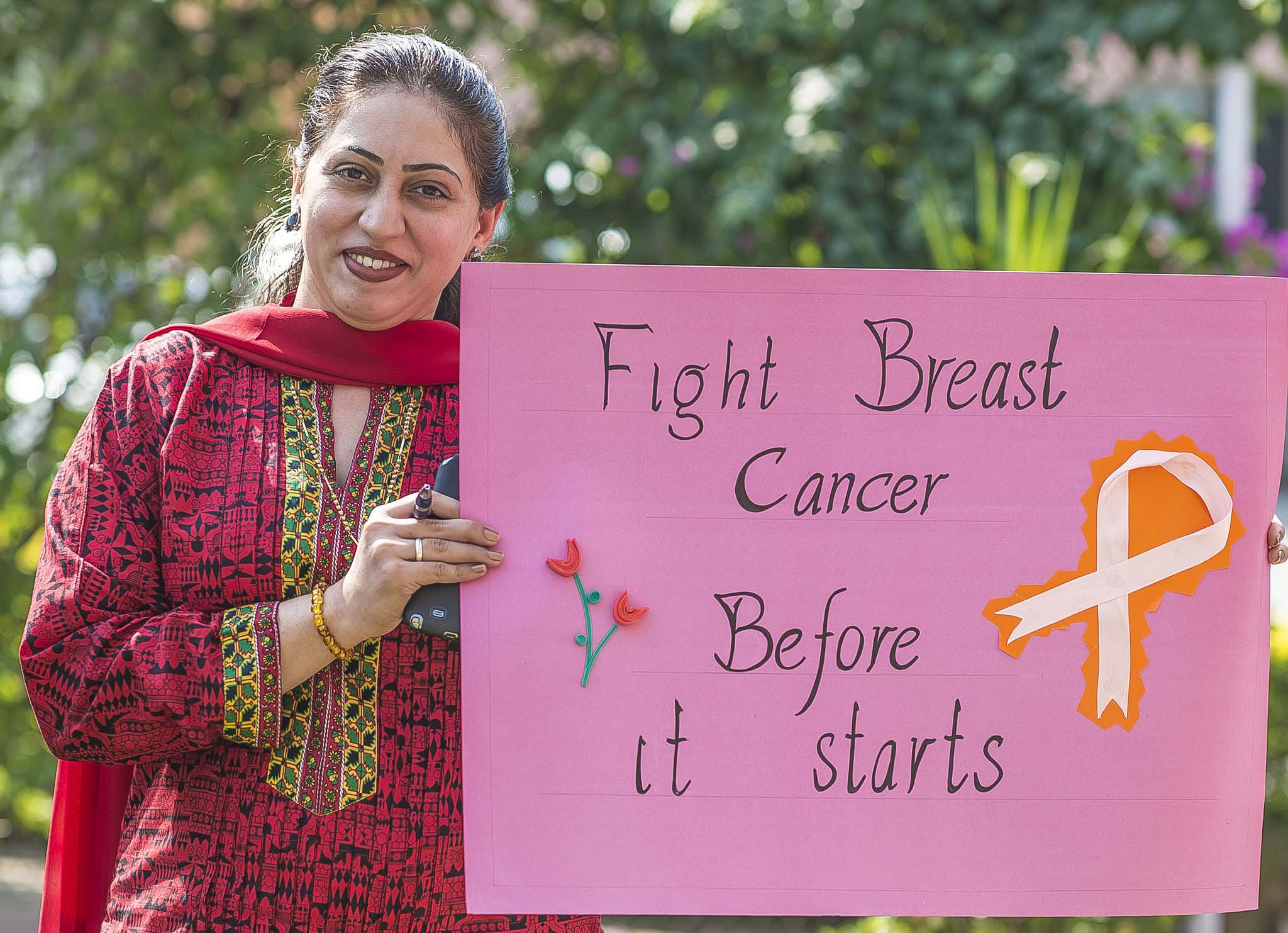
With World Breast Cancer Awareness month underway, health officials in Qatar are launching a new campaign to encourage women to be regularly screened for one of the country’s most common illnesses.
According to a recent report, women in Qatar are often diagnosed with breast cancer at advanced stages, which puts them at a higher risk of dying from the disease.
As incidents of breast cancer here increase, HMC will be holding a series of lectures, workshops and conferences throughout October in addition to handing out leaflets aimed at reinforcing the message that the disease is curable if it is diagnosed early.
“All women are at risk for breast cancer. But, when breast cancer is caught early and treated, survival rates can be increased,” Karl Alexander Knuth, chair of cancer services at Hamad Medical Corp. (HMC), said in a statement.
Breast cancer is the most common form of cancer in Qatar, accounting for 31 percent of cancer cases in women, according to the Qatar Cancer Registry. It states that there are approximately 56 cases of breast cancer for every 100,000 women living in the country.
That’s up from 46.1 cases per 100,000 in 2012, according to data published by the UN.
Incidents of breast cancer in Qatar are slightly higher than the average rate across the Middle East and North Africa, which stood at 43 cases per 100,000.
Qatar is also near the top of the six GCC states, which range from a low of 26 per 100,000 in Oman to 46.68 cases per 100,000 in Kuwait, the UN data shows.
Limited support
Research published earlier this year showed that high-income, well-educated and married women in Qatar are more likely to be screened for breast cancer.
This is in line with the conclusions of studies in other countries, which have found that low education levels, language barriers, transportation challenges and limited social support networks make it harder for low-income women to be properly screened for breast cancer.

The recent study, undertaken by researchers from several institutions including HMC and the University of Calgary-Qatar, found that women from the Levant and North Africa living in Qatar were “significantly” more aware of and practiced more breast cancer screening activities than Qatari nationals.
It noted that health professional in cancer research and screening centers have observed that Qatari women often shy away from screening due to concerns about anonymity and fear of discovering cancer.
The report’s authors recommend expanding low-cost or free medical services for low-income women in addition to making mammogram facilities accessible across the country.
This underscores the message from local organizers of World Breast Cancer Awareness month for women to seek medical advice if they notice any changes in their breasts, such as a lump or changes to the skin or shape of their breast, and to go for regular screening if they are above the age of 45 or have a family history of breast cancer.
Thoughts?







